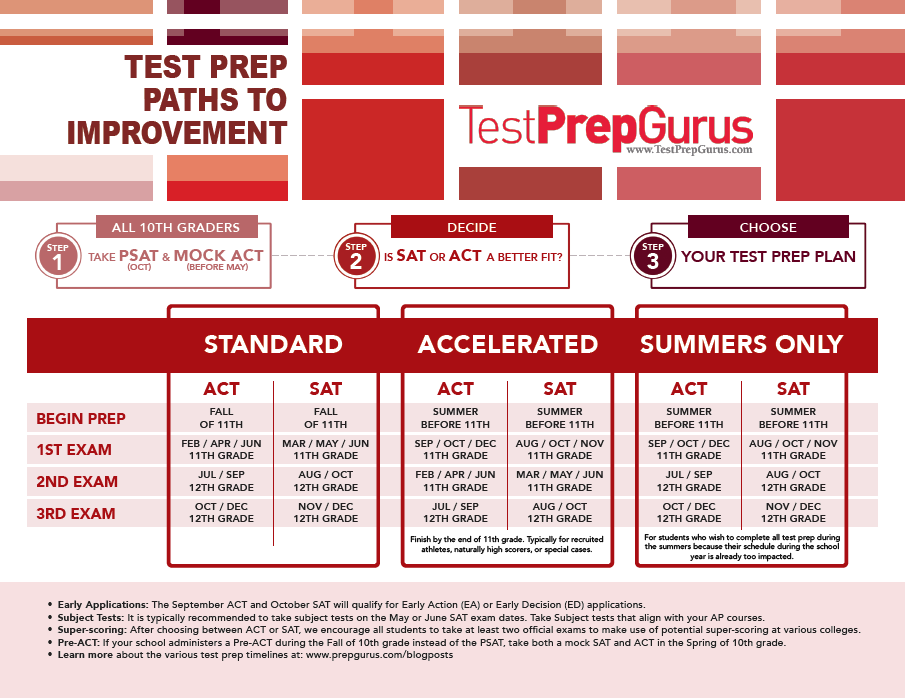Our Chief Guru, Nick Standlea, was recently interviewed by the Scarlet Scroll at Mater Dei High School about how students will be affected by the ACT's decision to allow section re-testing beginning in September 2020. The full interview is below—
Who will be the most impacted by this?
Students will be the most impacted by the changes to the ACT. To recap, the biggest change is that starting next September, ACT is going to allow students to retake individual sections of the exam. In other words, they theoretically won't need to re-take the entire ACT exam to improve their overall score.
What is your take on the new ACT rules?
Everything hinges on how colleges decide to interpret individual section retaking. So far, I’m not aware of any colleges coming out and saying that they will accept individual section re-taking on the ACT.
It is very possible that the majority (or all) of selective colleges simply won't consider individual section retakes in the 2020-21 admissions cycle. This is down to the fact that all of the data colleges currently collect on how ACT scores correlate with higher grades in their respective institutions is based on students taking the full exam in one sitting. Individual section retakes will change the fundamental structure of the ACT. As such, any college admissions stats department that knows what it is doing will need to re-test the correlation of individual section scores to students' future GPA at their respective university. Until they have some reliable data that has been proven statistically sound over multiple admissions cycles, I don't see how admission officers can trust scores from individual section retakes.
Do you have other concerns?
I have several—
One, individual section re-taking will only be available at digital testing centers. This is going to be problematic because there will only be a limited number of testing sites that will offer the digital version of the ACT.
Two, it will potentially be challenging for students to switch from the paper based version of the exam to the digital version.
Three, students might be better off re-taking the entire ACT because it’s easier to raise your score on certain sections of ACT than others. Simply re-taking your lowest score might not be the best path to reaching your highest possible composite superscore on the ACT.
Why do you think students should or should not be excited about these new rules?
Like so many aspects of standardized testing, the answer is, "it depends."
On the one hand, this change could potentially lower the anxiety students feel in the college admissions testing process. Students will feel less pressure on any given day they take the exam because they'll know that they can retake individual sections in the future. Obviously, lowering student anxiety is a positive development.
On the other hand, every time a testing agency changes its exam, there are unintended consequences. For example, virtually all students perform significantly better on individual sections than when they sit for the entire exam (the ACT runs over three and one-half hours). This is especially true for the science section because it's the last part of a very long test. Since nearly everyone performs better on individual sections, it is possible that this change will create unintended pressure on students to test more times than they otherwise would have under the current rules.
In fact, I'm already hearing a lot of chatter from parents about their plans to game the new system by retaking every section of the ACT. If a student takes the full exam once, plus a retake on each section, that's five separate sittings. That type of approach isn't going to minimize testing anxiety or intrusion into students' lives, it's going to increase it. Not to mention that college admissions officers tend not to like anything that looks like a student or family is trying to game the system — so it is highly likely such a strategy will backfire spectacularly.
While we’re on that topic, I want to make sure to emphasize that until we hear directly from colleges on how they plan to interpret individual section re-testing, families should not plan to be able to utilize re-taking individual sections of the ACT.
When will these rules be implemented?
The new rules come into play beginning with the September 2020 exam.
How do you think it will change the test and the number of people who take it?
The fundamentals of the test prep process have not changed. Every student should begin with taking a mock SAT and a mock ACT. They should then meet with a professional who can help them interpret the results, choose between SAT and ACT, and create an optimum college admissions testing plan.
Where do you see the ACT’s new rules going into the future? Do you think they’ll be temporary or permanent?
To sum up, section re-taking on the ACT may or may not actually become a new reality in college admissions testing. Again, everything hinges on how colleges decide to interpret individual section retaking.
So, until we hear directly from the colleges, families should create a prep plan for college admissions testing that is based around taking the entire exam every time.
As soon as we have more concrete details from leading colleges on if and how they plan to use ACT section re-takes, we will make sure to share that information!












